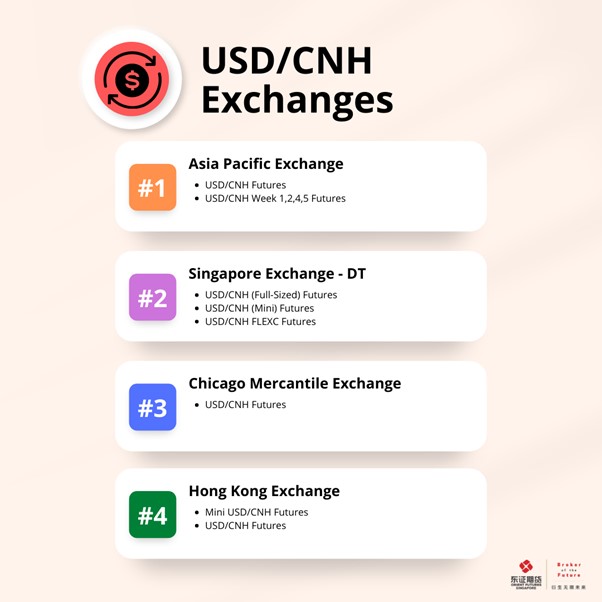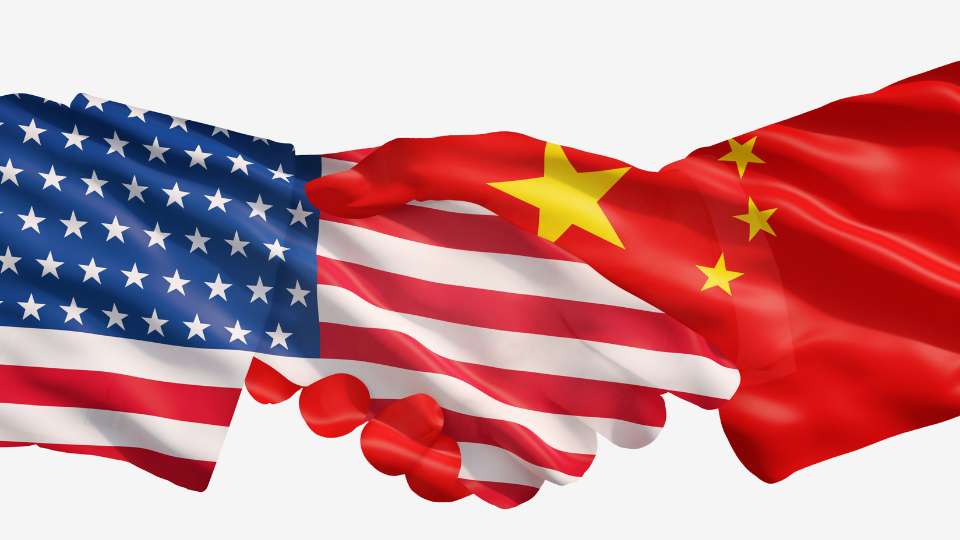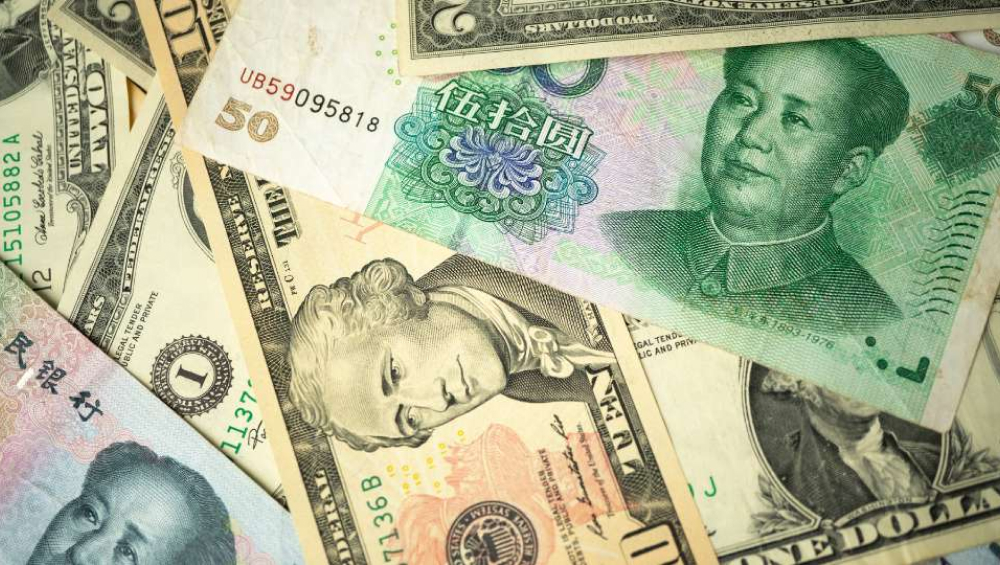About USD CNH Futures
China and the United States constantly engage in an increasingly intense rivalry that spans national security and economic competition. American leaders frequently point to China as their foremost long-term challenger in these domains.
Despite this growing tension, the world’s two largest economies continue to maintain intricate partnerships. Together, they jointly account for 40 percent of global output. This dynamic is particularly evident in the USD/CNH forex pair. They symbolized the various aspects of the US-China trade relationship.
USD CNH Futures represent a vital component of the global forex trading landscape. These futures contracts focus on the exchange rate between the United States Dollar (USD) and the Chinese Offshore Renminbi (CNH).
Apart from USD CHN Futures, traders also actively trade USD to INR (Indian Rupee) among the other types of forex futures.
Forex futures allow traders to speculate on future currency pair movements in the forex market.
As China‘s role in the global economy continues to expand, the USD CNH currency pair has garnered increasing attention from traders seeking to capitalize on the evolving dynamics between the two economic powerhouses.
In this article, we will discuss three important factors that traders should take note when trading CNH USD Futures. This would enable traders to make informed decisions and navigate the intricacies of this currency pair effectively.
Trading Forex USD/CNH Futures

Figure 1. Information Chart on the various exchanges through which traders can trade USD/CNH Futures via Orient Futures International (Singapore).
To trade USD CNH FX Futures, it is also important to know the exchanges and trading platforms available for them.
Orient Futures International Singapore currently provides access to four exchanges that offer USD CNH Futures Contract and USD CNH Options. These exchanges are the Asia Pacific Exchange (APEX), Chicago Mercantile Exchange (CME Group), Hong Kong Exchanges & Clearing Limited (HKEX), and Singapore Exchange (SGX). For detailed information on the futures contract specifications, please click here.
As trading with forex becomes more popular, traders must be more careful due to the rise in forex trading scams. Therefore, it is crucial to trade through regulated brokers to prevent the unfortunate occurrence of such events. To learn more about regulated brokers, please click here to find out what is a regulated broker.
Orient Futures Singapore is a MAS Regulated forex broker (Monetary Authority of Singapore MAS). Being one of MAS forex brokers means that Orient Futures Singapore is authorized and supervised by MAS to offer forex trading Singapore. This places Orient Futures Singapore among the best forex broker Singapore companies, offering a secure trading environment.
Orient Futures Singapore further strengthens its position by serving as an exchange clearing member of SGX. This membership facilitates a direct link between clients and the exchange. This provides a seamless trading experience of SGX USD CNH Futures and various other products. This direct connection ensures an efficient and secure trading experiences for clients.
Being an expert investor Singapore company, Orient Futures Singapore also offer Futures Trading for traders across the world under different trading systems.

3 Important Things to Take Note When Trading USD CNH Futures
1. Interest Rate Differentials
Traders must monitor the interest rate differences between the US Dollar (USD) and the Chinese Offshore Yuan (CNH). The interest rate plays a crucial role in determining the attractiveness of holding one currency over the other.
Higher interest rates in the United States (US) can attract capital flows into USD, potentially strengthening the currency against the CNH. Conversely, lower interest rates or changes in monetary policies can lead to currency depreciation.
Traders should closely monitor central bank decisions, economic indicators, and statements from policymakers that provide insights into future rate changes. These factors can impact the exchange rate and influence trading strategies.
2. Trade Relations and Geopolitical Events
The relationship between the US and China is a significant driver of the USD CNH exchange rate. Trade tensions, negotiations, and changes in tariffs can create uncertainty and volatility in the market.
Geopolitical events like economic sanctions, politics, or diplomatic tensions can affect investor sentiment and cause sudden changes in currency pairs. Traders need to stay updated on news related to geopolitical developments to anticipate potential market movements and adjust their strategies accordingly.
3. Chinese Economic Data Releases
Economic data from China, as an economic powerhouse, can heavily influence the CNH’s value. Key indicators such as Gross Domestic Product (GDP) growth, inflation, manufacturing Purchasing Managers’ Index (PMI), and trade balance figures shows how well the Chinese economy is doing.
Strong economic data may lead to currency appreciation, while weak data can lead to depreciation. Traders should have a calendar of economic releases and pay close attention to data surprises that can create short-term market movements. Additionally, comparing Chinese economic data to global trends can offer insights into the currency’s relative strength.
By integrating these factors into the trading strategy, traders can better navigate the USD CNH Futures market.
Market Forex News
According to Reuters, the CHN currency (Chinese Yuan) has experienced a decline of approximately 6% since the beginning of the year. Specifically, in August alone, it has faced a loss of around 2.4% against the US dollar.
Reuters also reported that China’s major state-owned banks have been actively engaged in exchanging US dollars for yuan in both onshore and offshore spot foreign exchange markets this week. This strategic move intends to slow down the rapid depreciation of yuan’s value.
In response to these efforts, Forex.com has indicated a slightly positive undertone in the attempts to mitigate losses in the Yuan’s value.
The country’s central bank, the People’s Bank of China, established the USD to RMB rate at 1USD to 7.2076 RMB on 17 August 2023.
This rate represented a sharp decrease from the previous day’s rate of approximately 7.2994 RMB, resulting in the most substantial gap since October. Consequently, this alteration prompted a downward shift in the USD/CNH forex pair.
Reuters attributed the recent acceleration in the yuan’s depreciation to two main factors. Firstly, the expanding yield gap between China and the US. Secondly, growing investor concerns about China’s sluggish economic growth and the rising vulnerabilities in its real estate and shadow banking sectors. These factors combined have contributed to the observed depreciation of the yuan.
Investors have expressed disappointment over the slow implementation of stimulus measures by the China government to boost economic growth. Concurrently, the People’s Bank of China (PBOC) has adopted a more accommodative monetary policy to provide support to the economy. However, the consequence of reducing interest rates has added further pressure on the yuan’s valuation.
Start Trading with Orient Futures Singapore
Being an Overseas Intermediary of Shanghai International Energy Exchange (INE), Dalian Commodity Exchange (DCE), and Zhengzhou Commodity Exchange (ZCE), when foreign clients participate in internationalised futures contracts in these Chinese markets with us, they have direct access to trading, clearing, and settlement. Our parent company, Shanghai Orient Futures, is the largest broker in terms of aggregated volume across the five regulated exchanges in China.
Orient Futures Singapore also currently holds memberships at the Singapore Exchange (SGX), Asia Pacific Exchange (APEX), and ICE Futures Singapore (ICE SG). Starting August 2023, corporate clients can also gain access to the B3 Exchange through us.
We provide bespoke services to our professional clients, tailored to their corporate and individual needs. Our team will be there for you 24 hours on trading days to provide a one-stop portal for all your trades, with simple processes and an intuitive user interface that has low or near-to-zero latency.




